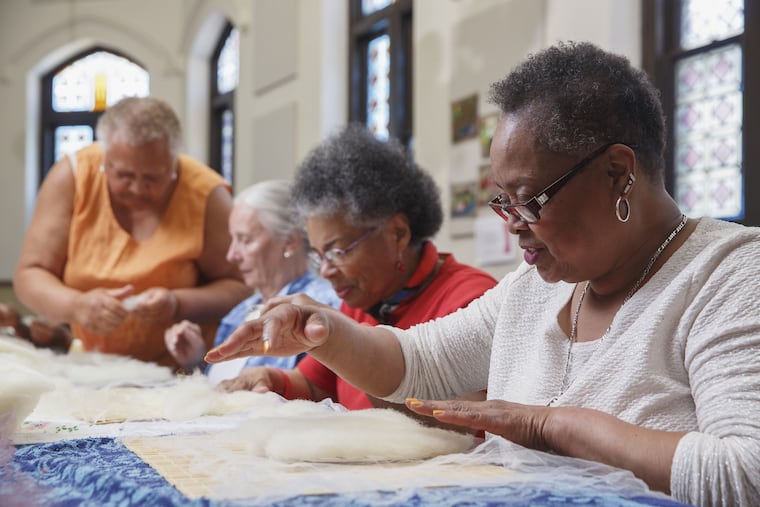A 200-year-old Philly nonprofit is remaking itself into a $50 million foundation devoted to serving older adults
Ralston Center remakes itself as grant maker after $44 million sale of property in University City.

Ralston Center, a Philadelphia nonprofit founded more than 200 years ago, is entering a new phase as what it says is the city’s only grant-making foundation devoted to serving older adults.
Ralston, which opened in 1817 as the Indigent Widows and Single Women’s Society, closed its remaining services at the end of December and sold a property it had owned since the 1880s on Jan 10. The $44 million sale boosted Ralston’s endowment to more than $50 million.
Starting this year, Ralston, now called the Sarah Ralston Foundation, in honor of its founder, will give out $2 million a year to nonprofits that serve Philadelphia’s elderly. The nonprofits do not have to be based in the city to be eligible.
“We’ve always been an organization that adapts to the time and the current need at hand,” said Ralston’s executive director, Lynette Killen. “With no other regional foundation dedicated to the needs of older people, we realized that the best way for us to continue to serve this population in Philadelphia is as a funder.”
A rare move
Ralston’s transition from a nonprofit that provides services to a grant-making foundation doesn’t happen often in the nonprofit world, and when it does, it usually involves the sale of a nonprofit hospital to a for-profit company. In those cases, net proceeds from the sale typically go into a foundation that supports health programs in the same area serviced by the hospital.
Local examples are the Foundation for Delaware County from the 2016 sale of Crozer-Keystone Health System, the Phoenixville Community Health Foundation from the 1997 sale of Phoenixville Hospital, and the Foundation for Health Equity from the 2005 sale of Chestnut Hill Hospital.
The shift at Ralston is in line with good governance, said John MacIntosh, managing partner at SeaChange Capital Partners, a New York nonprofit that provides grants, loans, analysis, and advice to other nonprofits. The duty of nonprofit boards, he said, is “to the mission of the organization, not to the particular form in which that mission is delivered.”
A shift such as Ralston’s does not happen very often because few nonprofits have valuable real estate as Ralston did, at 3615 Chestnut St. in University City.
A Ralston history published to commemorate the organization’s 200th anniversary said that when the building opened in 1887, it could accommodate 100 residents “with sunshine for each room, complete heating and lighting arrangements and household equipment.” The cost for the entire building was $105,000.
The building, which opened debt free, was Ralston’s third location. It started in a rented home at Front and Market Streets and then in 1820 moved into a 70-room building it constructed on Cherry Street between what are now 18th and 19th Streets, according to the history. A proposed elevated railway on Cherry Street prompted the move across the Schuylkill to what is now University City.
Ralston’s future
Five years ago, Ralston’s board began strategic planning with the help of a consultant.
“We were hoping to develop a new business model,” Killen said. The goal was to expand Ralston’s home-care service to the point that it could at least break even financially, she said. Ralston also offered exercise, art, and other classes for seniors through what it called a wellness program.
When building a financially sustainable home-care business didn’t work out, “we started to look at what could we be, what is our vision? We knew that just doing a wellness program was not going to get us a ton of impact,” Killen said.
That process led Ralston to grant making, with two rounds a year.
First, the foundation plans to make grants ranging from $5,000 to $50,000 to help pay for day-to-day operations at organizations with less then $3 million in annual revenue. Applications are due April 1, Killen said.
A second set of grants will support innovative projects and is open to larger organizations. The group will prioritize grant proposals that offer access to affordable, equitable, and high-quality care; behavioral/mental health care; caregiver support; care coordination; housing; and ideas to stem social isolation in elderly people, Killen said.
“None of these issues are new. They are entrenched, but we are looking for approaches that will potentially displace current models of service,” she said.